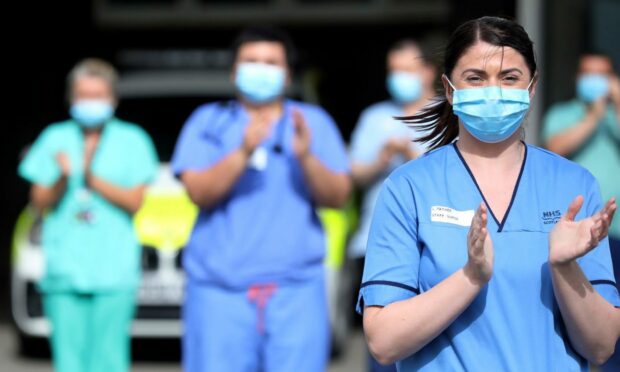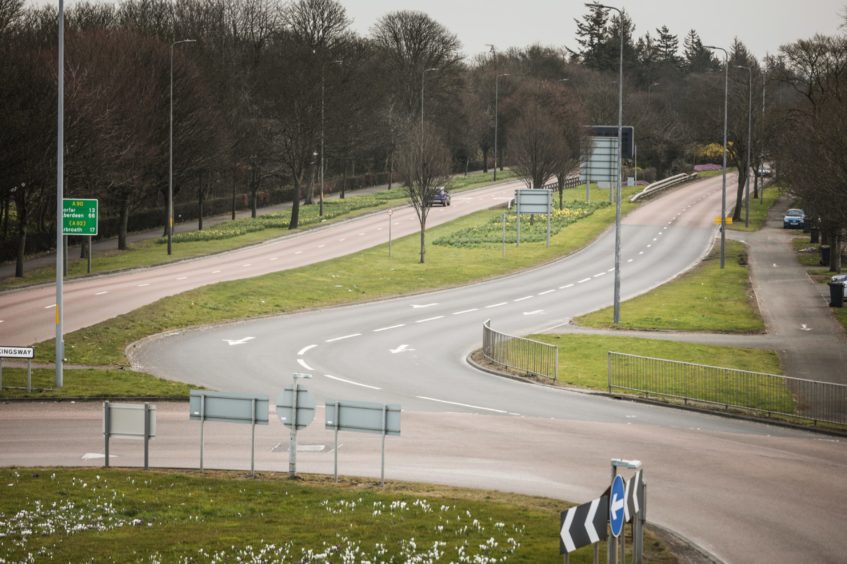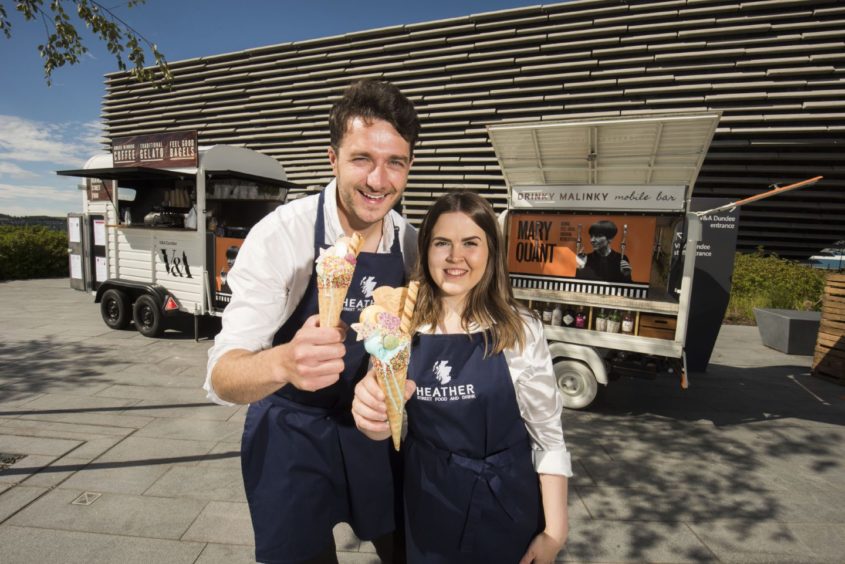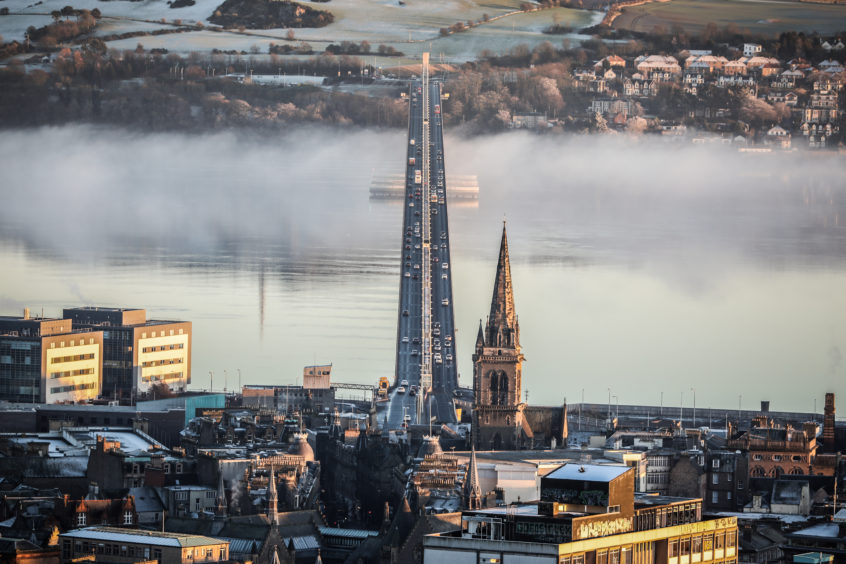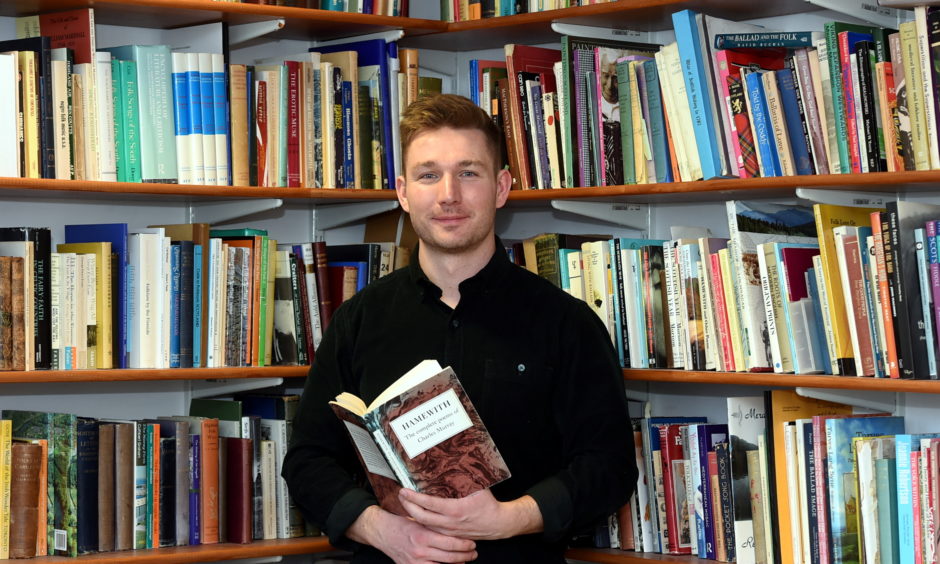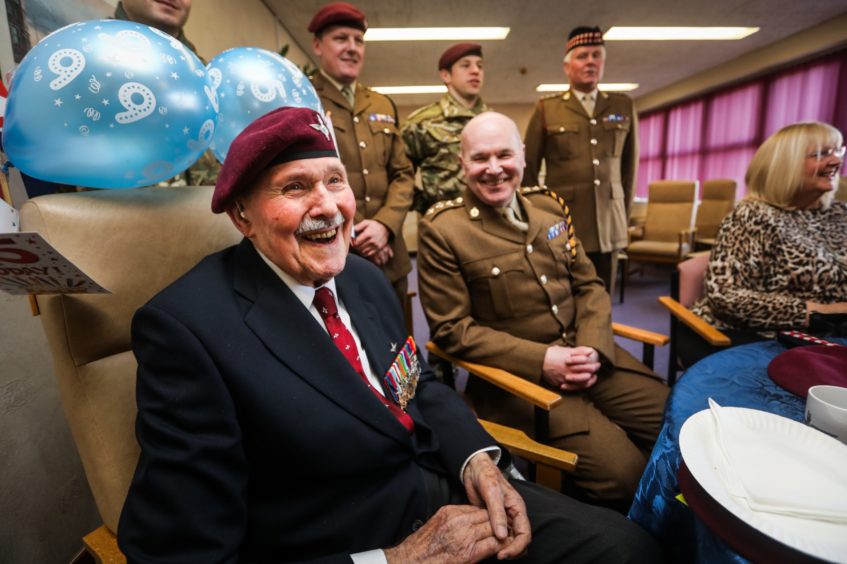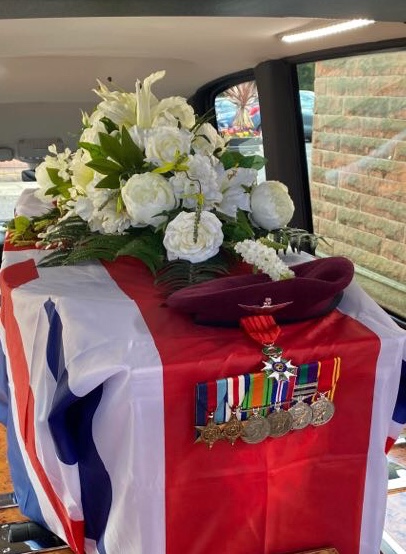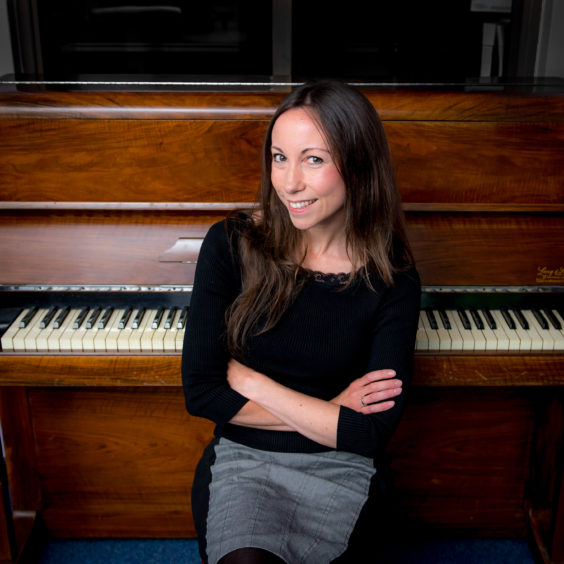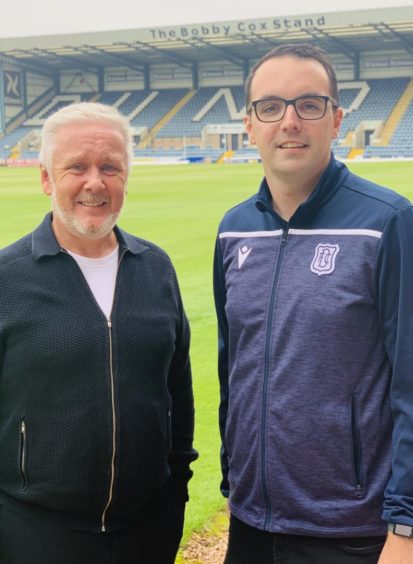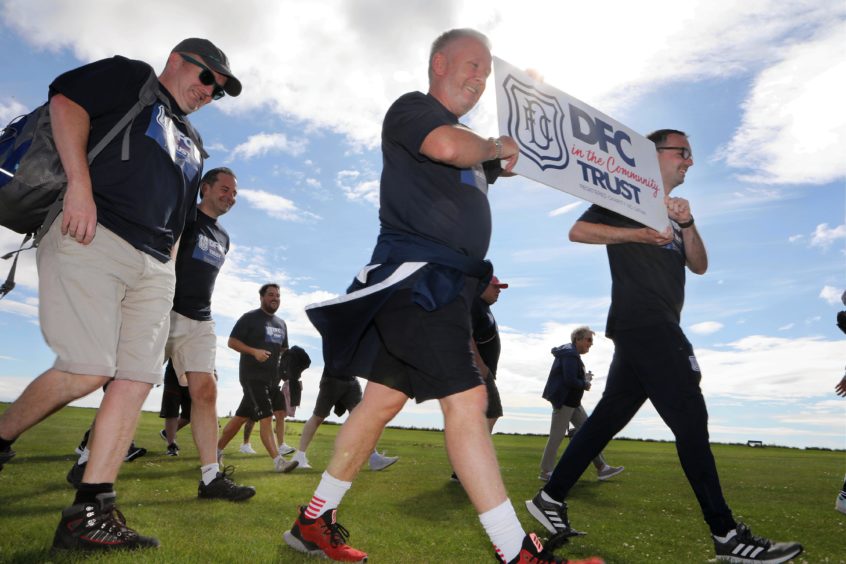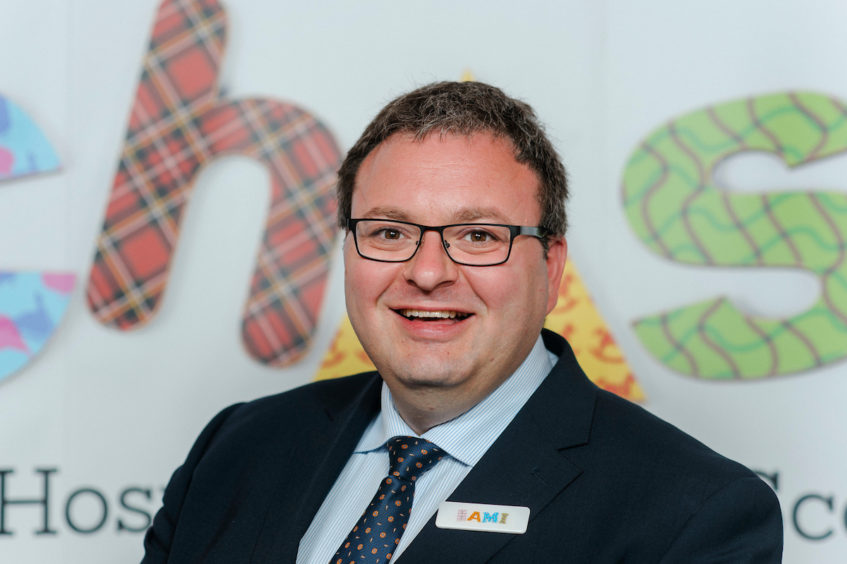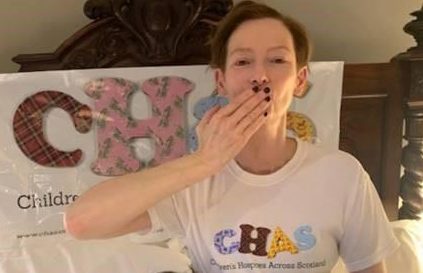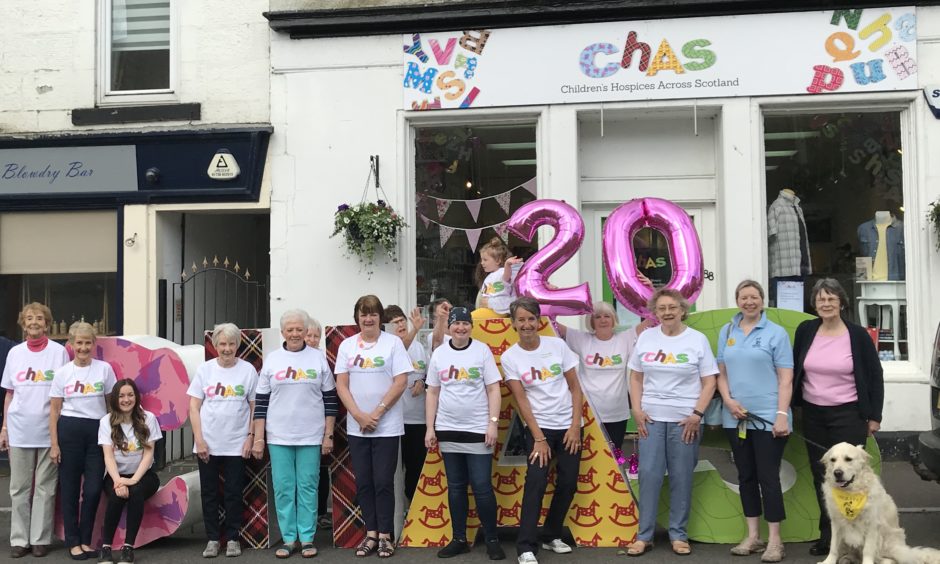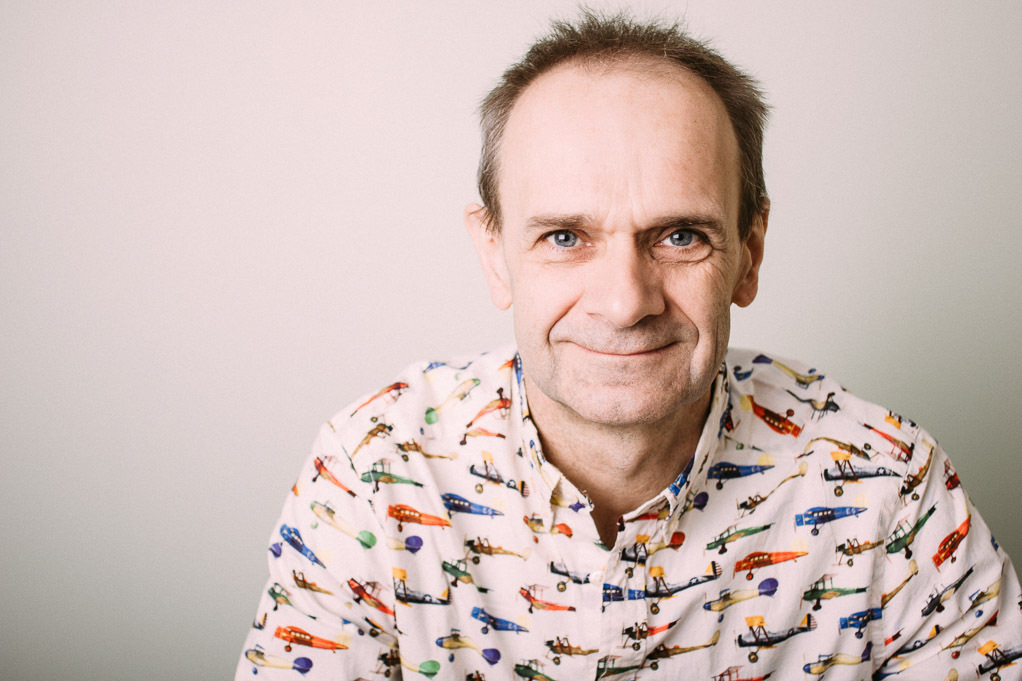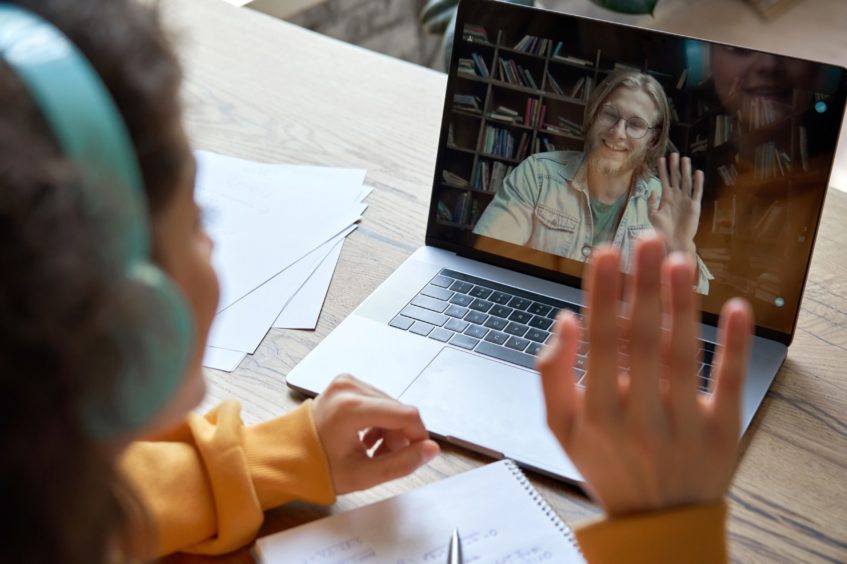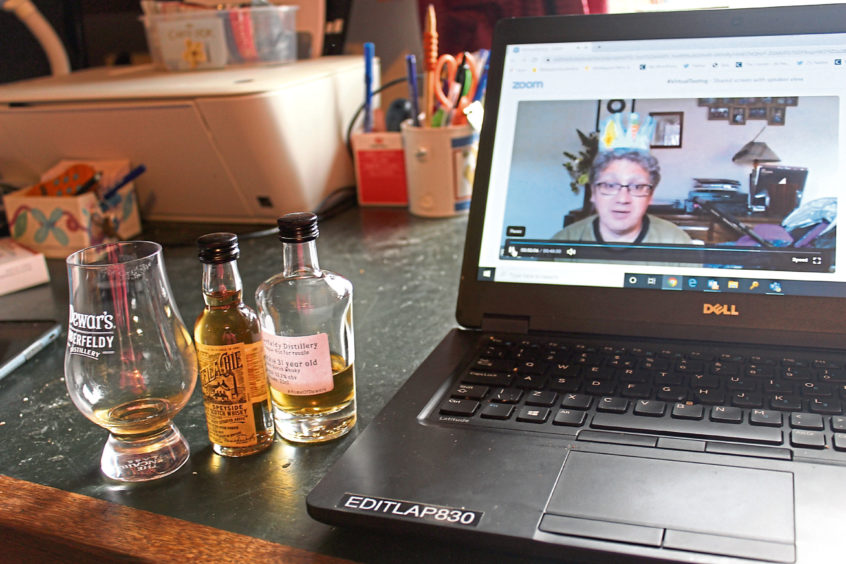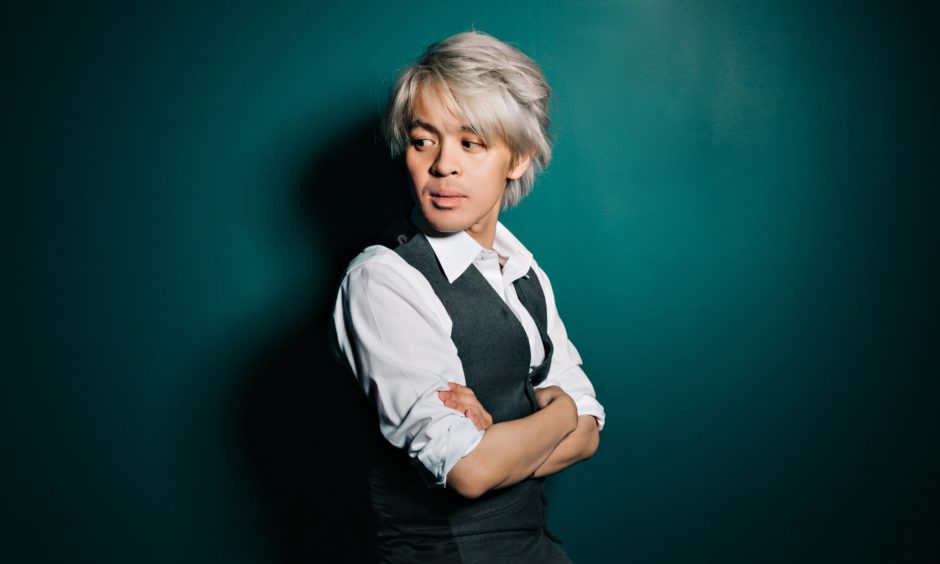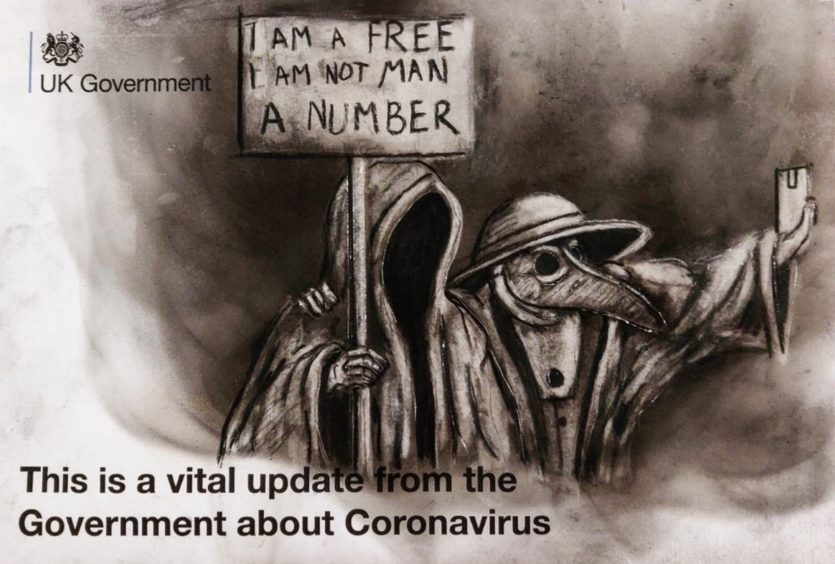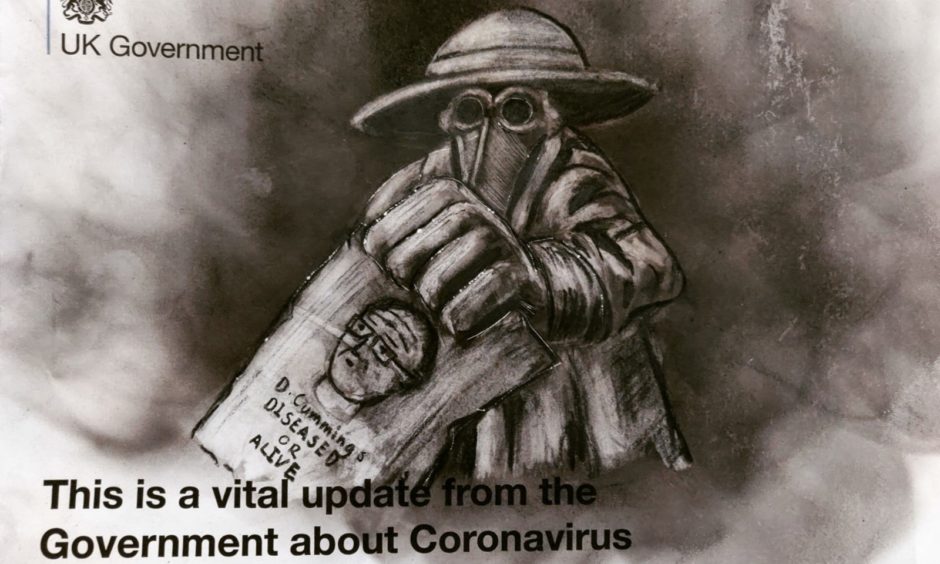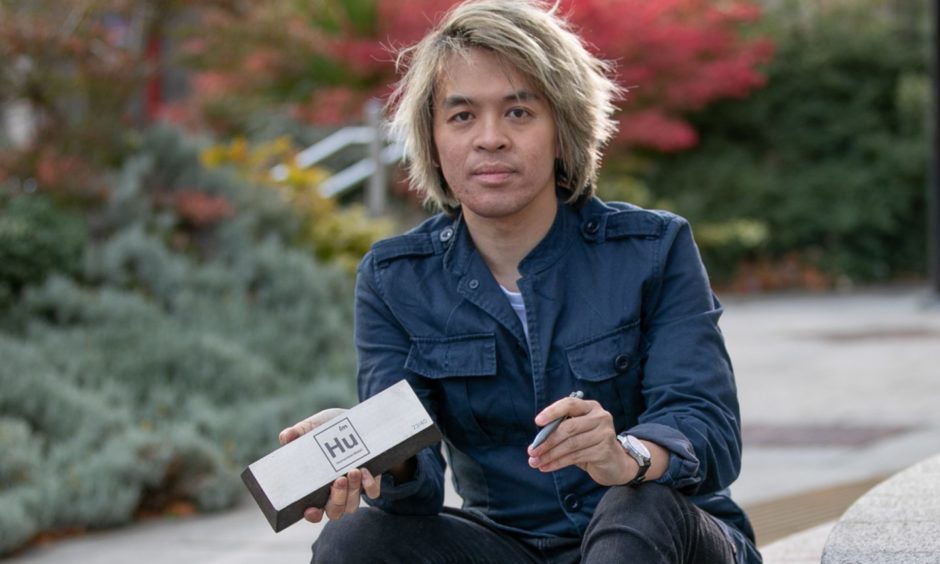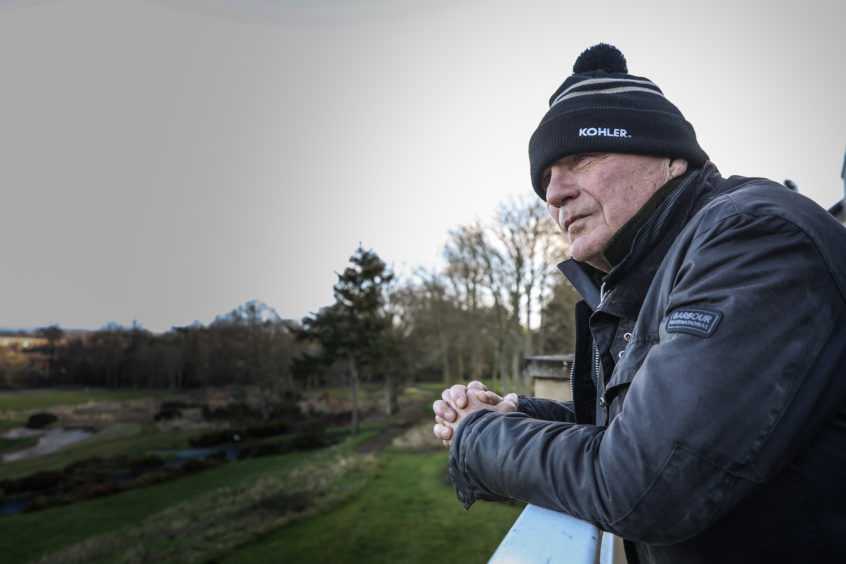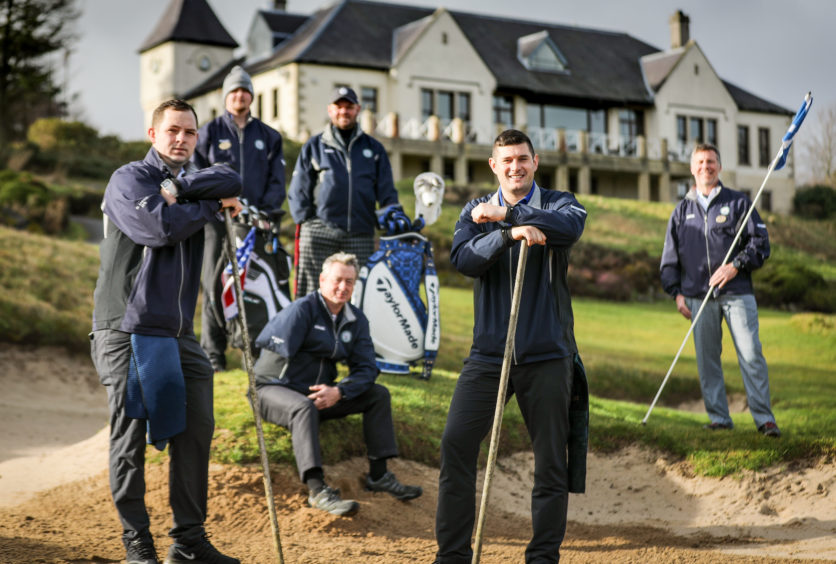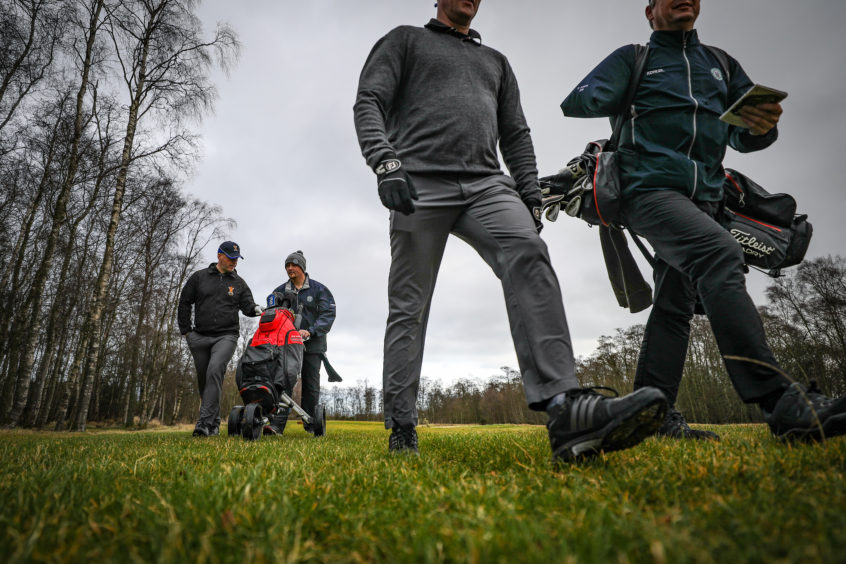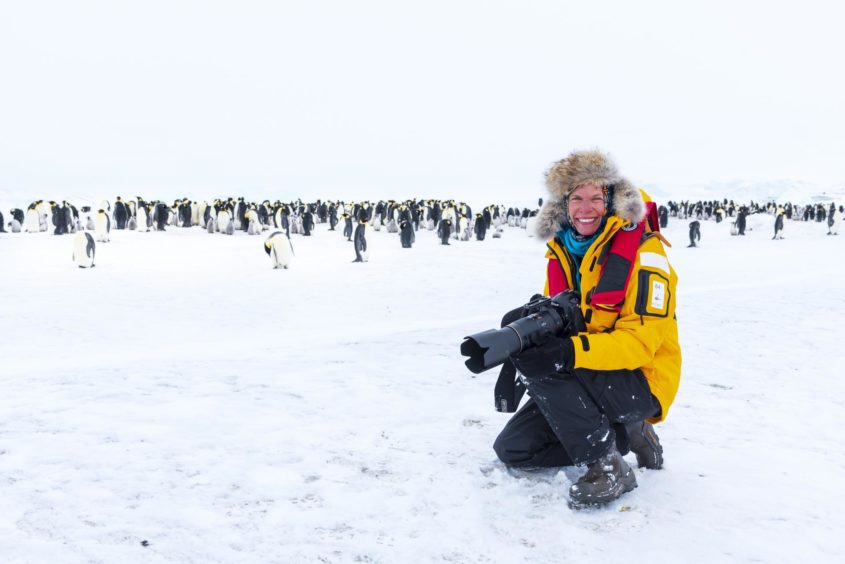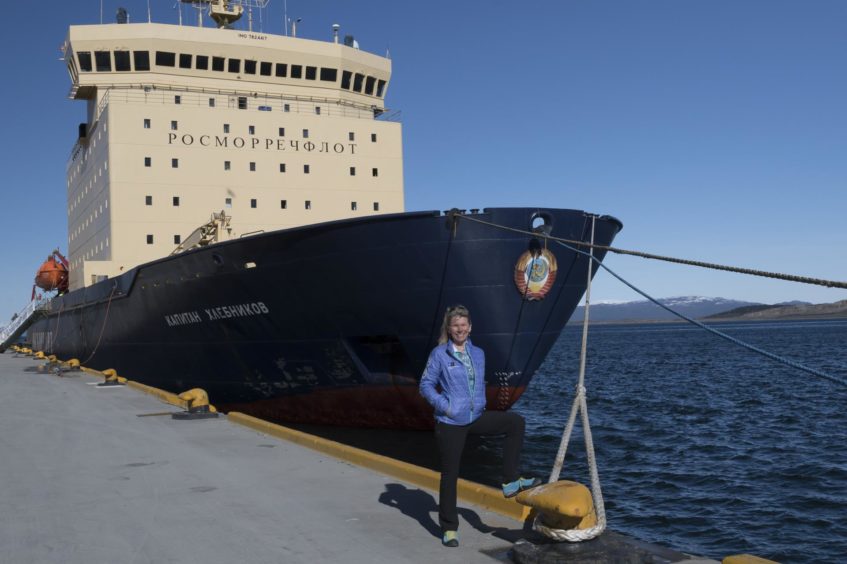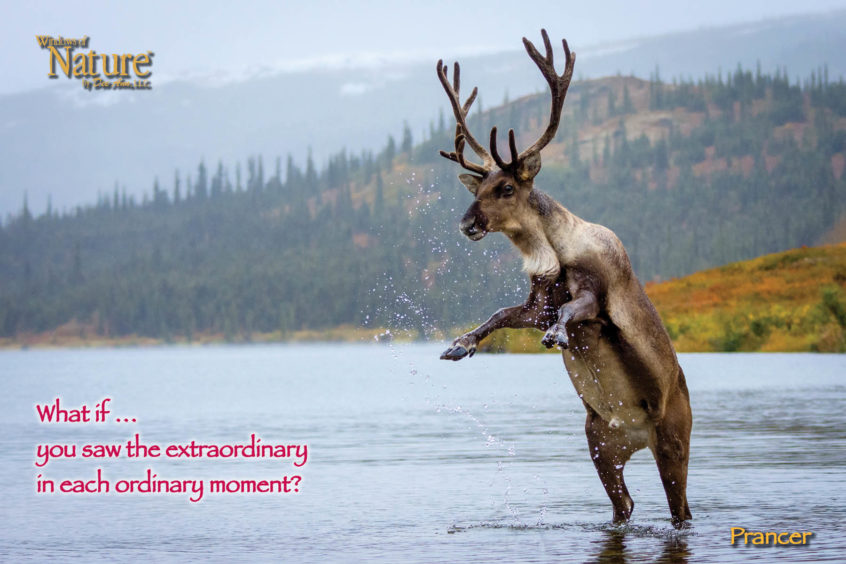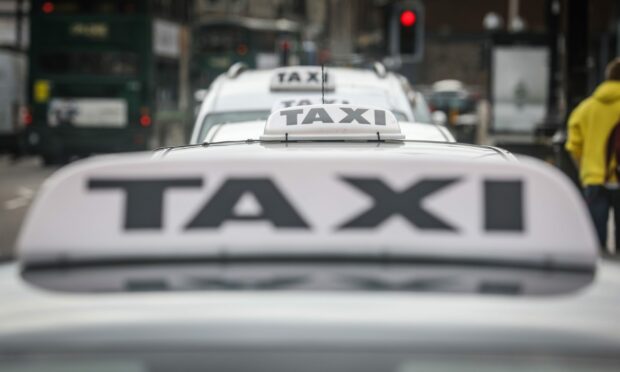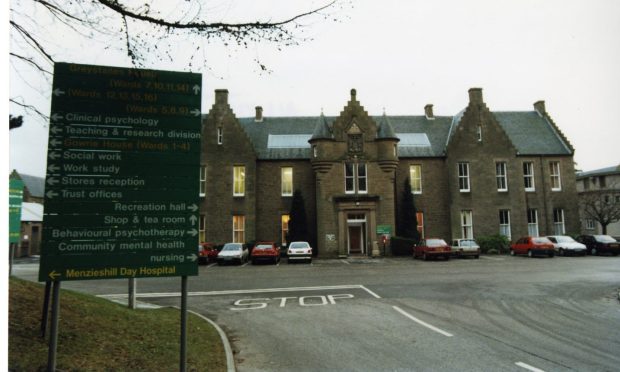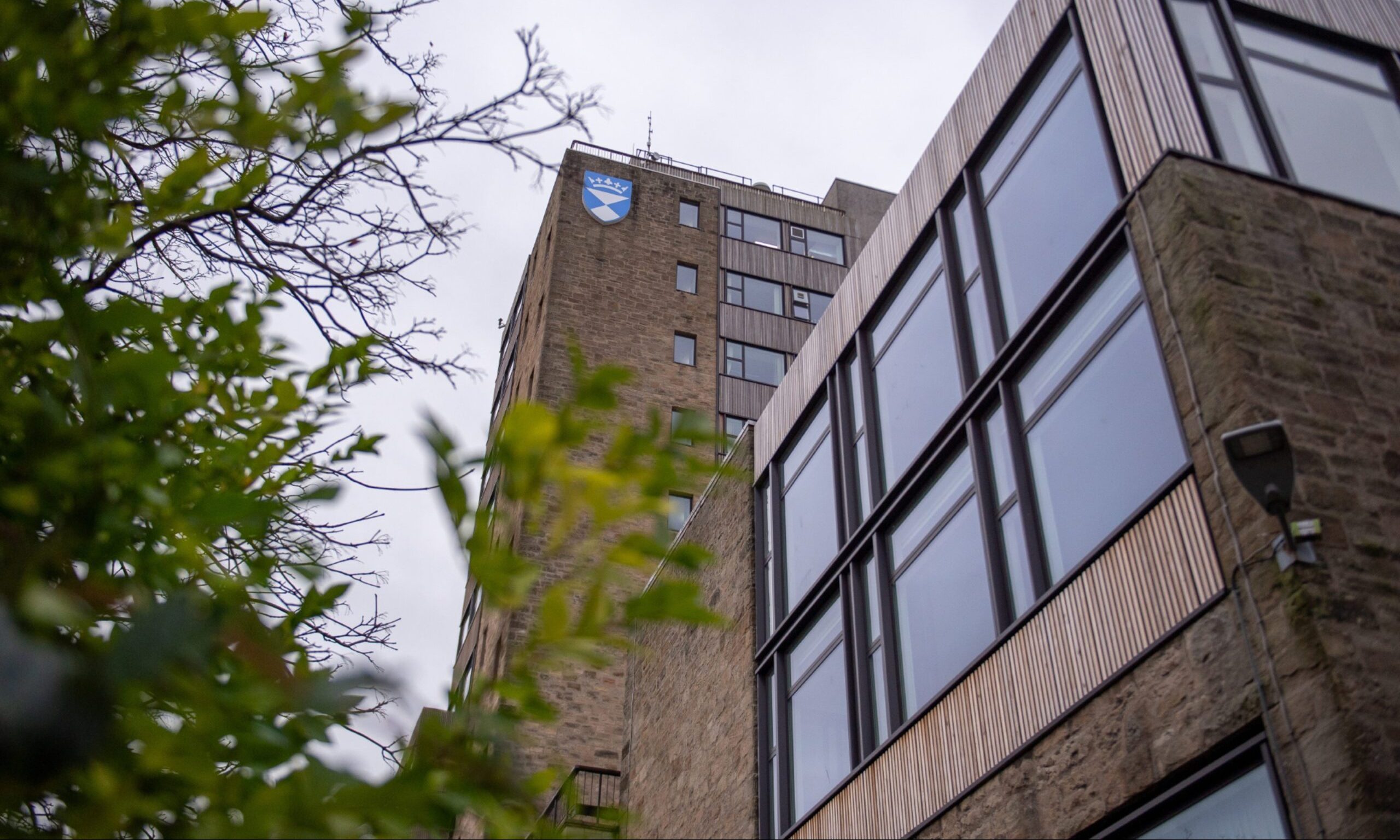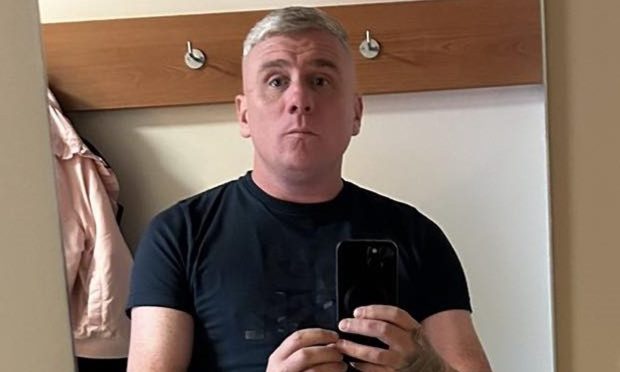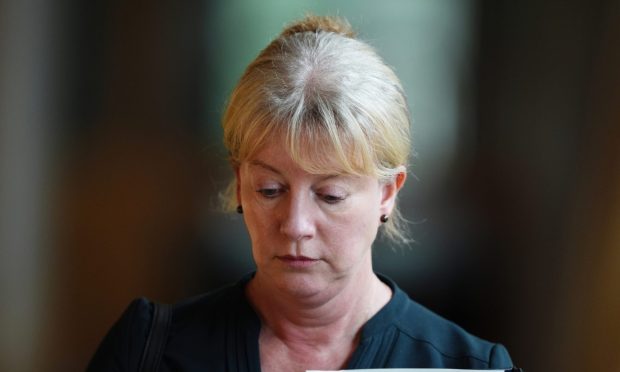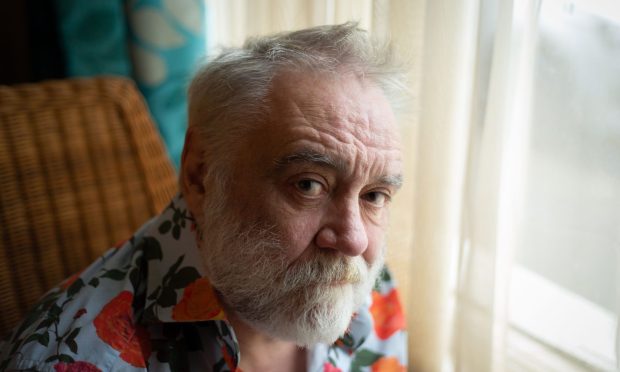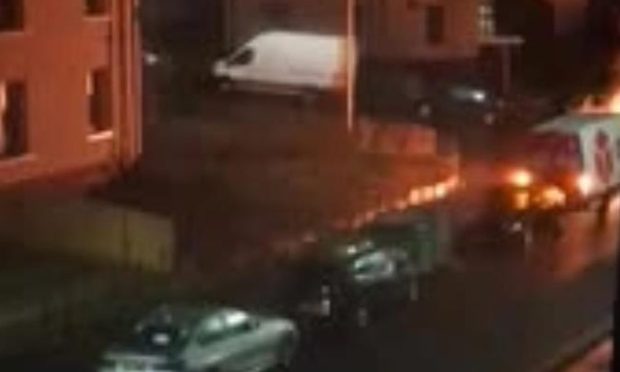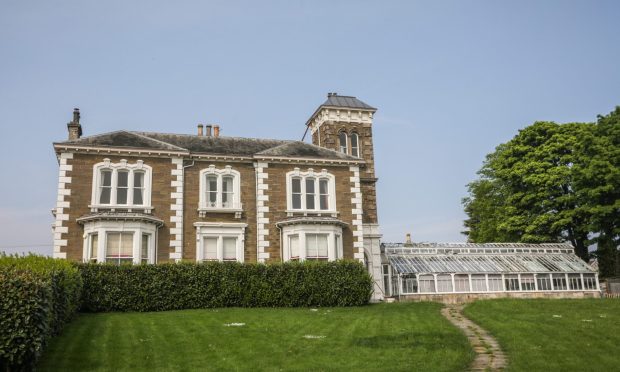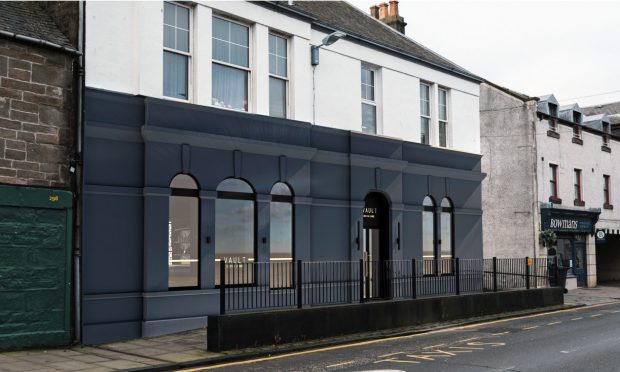As news of successful Covid-19 vaccines bring hope, what lessons learned during the pandemic should be retained as we look to the year ahead?Michael Alexander asked a range of people for their views.
Chris Heather – Dundee food entrepreneur
Dundee-based street food entrepreneur Chris Heather will never forget the moment during one of those once-a-day walks we were prescribed during the first lockdown when he stood in the middle of the city’s Kingsway at rush hour, and there wasn’t a car to be seen.
The traffic lights changed silently between green, amber and red, but there was no traffic.
He remembers it seeming “beautifully apocalyptic”.
One of the most congested roads in the city had fallen into a tranquil silence.
Birds sang in the trees and the air tasted like it does in the glens.
“It was Glen Kingsway!” he smiles.
“You would have been perfectly safe to pitch a tent and spend the night!”
The year 2020 certainly threw up plenty of challenges – and opportunities – for Chris and his partner Melodie Paterson.
The Heather Street Food entrepreneurs had expected to be out on the road setting up at music and food festivals, weddings and parties during the summer.
Forced to adapt, they teamed up with V&A Dundee and now serve takeaway food and drink from a three-wheeled Piaggio van and converted horse box at a prime location on the waterfront where they specialise in seasonal Scottish food and drink.
But as they look to the future, Chris hopes more fundamental positive changes to society will come from the pandemic – notably the end of the daily commute.
“I used to live in the countryside and commute into Dundee in some of the dodgiest diesel cars I could find for under £500 on gumtree,” he says.
“Driving into the office always felt like a scene from Mad Max.
“Every junction and roundabout was a wheel-spinning near death experience as the city raced to be at its desk by 9am.
“Getting rid of the commute will hand people back two hours a day. Two hours a day adds up to 520 hours a year. That’s three weeks. That’s some people’s entire annual holiday allowance.
“If you are happy enough to keep working from home, imagine what you can do with those extra three weeks?”
Alastair Heather – Scots language expert and football commentator
The absence of fans attending football has seen Chris’ brother and Scots language expert Alistair Heather become the commentator and pre-match host for the online presentation of matches via Dundee United TV.
Away from Tannadice, one thing he’s really learned to appreciate and enjoy during the pandemic is walking, and “micro adventures” around local environments.
He’s also been pleased to see the changing discourse around mental health.
Another thing he’s been very glad to see during the pandemic, however, is the widespread increase in digital skills.
“For a time I worked for an organisation dedicated to upskilling Scots digitally, as many working class folk particularly were finding modern job markets inaccessible due to their skills shortages,” he says.
“Covid has nudged folk, myself very much included, towards improving our comfort online.
“We’ll all be glad to ditch the screens for a bit post-vaccine, but the residual upskilling will hopefully have longer term positive impacts on working class folks’ employability.”
Lorraine Abercrombie – family funeral heartache
For Glenrothes woman Lorraine Abercrombie, 2020 brought heartache when her 96-year-old D-Day landings Parachute Regiment hero father Eric Tandy died at the Victoria Hospital in Kirkcaldy at the end of March after a short, non-coronavirus related illness.
With the Covid-19 lockdown at the time restricting who could attend her dad’s funeral service at Kirkcaldy Crematorium, Lorraine admits it hindered the family’s ability to grieve.
She was very touched when, on the day of the funeral, neighbours lined the pavements in a socially-distanced manner to give the Legion d’Honneur recipient a fitting final send off.
Perhaps not surprisingly, it’s the kindness of most people towards others and the heightened awareness of those around us that she hopes will become a long lasting fixture of life moving forward.
“One of my neighbours and I often exchange texts as we now very rarely see one another in passing,” says Lorraine of Glenrothes.
“I hope this will change once winter is over and we are out in our gardens again.
“There are, obviously, some who choose to flout the guidelines re-masks, etc, but on the whole everyone tries their hardest to give each other ‘space’!”
Perth composer Helen MacKinnon
The first coronavirus lockdown was a productive time for Perth-based composer Helen MacKinnon.
With the sudden cessation of the world’s crazy pace of life, she channelled a lot of lockdown emotions into composing – the grief of losing her grandmother in April, the depth of everything that was going on in the world, alongside the hope that there would be a brighter period ahead for us all.
“The past year has fostered a sense of ‘togetherness’; that sharpened awareness of our interdependency as families, neighbours and communities, and as different sectors working together to support a safe society,” says the 40-year-old former chief executive of Perth & Kinross charity PKAVS.
“I hope that the renewed sense of togetherness, kindness and creativity will continue beyond the pandemic.
“Another lesson has been one of gratitude for the small things that we sometimes take for granted.
“A hug with a family member, a workout at the gym, the buzz of a live concert.
“We will appreciate these more than ever now!”
Craig Murray – Dundee FC in the Community Trust
As Dundee FC in the Community Trust chairman, 56-year-old Carnoustie man Craig Murray has worked hard with fellow volunteers throughout the year to continue promoting life-changing opportunities and social inclusion through the trust.
The Dark Blues supporting father-of-two knows the new year will bring more challenges but he is looking ahead to 2021 with great optimism.
“I think we are now more aware of other’s personal space,” he says.
“Less stress at the supermarket tills, more accepting to queue, and more patience with others who are maybe more in need than ourselves.
“The biggest thing for me and the trust in particular is the ‘Zoom Boom’: the ability through IT to see your granny on a daily basis, when even before this pandemic, it was maybe weekly!
“We now have octogenarians picking up and logging on to tablets, when two years ago, tablets were for taking!
“From DFC in the Community’s point of view, we have been able, through IT, to reach out to people that we normally wouldn’t have – pandemic or no pandemic.
“Hopefully the Covid year has taught us all to appreciate each other more and take a little more time with each other.”
Rami Okasha – CHAS chief executive
When Rami Okasha took up the reigns as the new chief executive of Kinross-based Children’s Hospices Across Scotland (CHAS) in February 2020, he could never have imagined the Covid-related challenges that lay ahead.
With 16,700 babies, children and young people in Scotland living with a life-shortening condition, a lot of families with very ill children found 2020 especially hard.
Some experienced poverty, isolation, loneliness and grief.
When Covid hit, CHAS had to prioritise end-of-life care in its hospices.
But the charity’s dedicated, creative and resilient staff and volunteers also wanted to make sure they stood with families living complex and difficult lives.
In the space of just 10 days, the charity set up the first ever Virtual Children’s Hospice which families have described as ‘a lifeline’.
They also expanded the CHAS at Home team, with nurses coming out to children’s homes when needed.
Rami is certain that once science has triumphed over the virus, life won’t go back to how it was.
He suspects fewer people will be based in offices and hopes a renewed community spirit will develop too.
For CHAS, however, there is “great learning” to be had which they will hang on to.
“For charities like CHAS, this has been a hard time – many fundraising events have been cancelled,” he says, adding that CHAS has to raise millions of pounds to support dying children with hospice care each year, so that will be a top priority in the year ahead.
“But the generosity of people in Courier Country has shone through.
“The global pandemic brought with it many challenges in the way we deliver care but our burning ambition; to reach every family who needs us, remains unchanged.”
The Alien Cormorant – Dundee musician
Dundee musician The Alien Cormorant – aka Spare Snare’s Alan Cormack – is in no doubt that 2020 was a “crazy year”.
Having released two Covid-19 lockdown inspired collaborations with Italian musicians Cecilia Miradoli and electronic artist Gold Mass, he used the periods of lockdown to learn new production techniques and find alternative ways to do promotion, which will allow him to be more productive in the future.
However, he also anticipates permanent change in the world of work.
In his day job as a Digital Engagement Officer for a Scottish Government Regulator, he started working from home in March and began communicating with colleagues remotely using video conferencing.
“This is definitely something we will continue to use,” he says.
“The pandemic has allowed my employer to revaluate how we work as an organisation and we will become more agile.
“We’ve realised that work is something that you do and not a building you visit.”
Gordon Povey – Fife serial entrepreneur
Kirkcaldy-based serial technology entrepreneur Gordon Povey, 57, says it is generally acknowledged that many will not go back to the ‘old normal’ once the pandemic recedes.
For him, it is not just about work-life balance. Climate change and the drive to live sustainably is hugely important too.
“Surely, it would be folly to return completely to our old habits after it has been proven that regular hour-long, expensive and polluting commutes may not be essential?” he says.
However, Gordon thinks there is a danger of going “too far back to old habits” because the second wave has made everyone weary, and there is a longing to get back to close to where we were.
He is also concerned about the “unintended consequences” of seemingly positive changes.
During this pandemic people have lost a lot of social interaction through lack of physical meetings and this has affected mental health.
Through his work with web-based technology, he has also become acutely aware of a phenomenon called the ‘filter bubble’ and believes it’s effect on society has accelerated rapidly during the pandemic with greater levels of polarisation towards extreme viewpoints.
A filter bubble occurs when the online content we consume – measured by the links we follow – is used to train algorithms that select and offer other content we might like.
The problem is that the content you are offered is governed by artificial intelligence trained to maximise the likelihood of you clicking a link and generating a revenue for the ad and content providers.
The result is the tendency for individuals to gradually lean further and further in one direction and click on progressively more biased content.
In the online world there is currently no real check mechanism to stop this happening and with less human interaction at work or in a social setting, less counter-balance to promote alternative beliefs.
“In summary – we must continue to travel less for work and be more sustainable in 2021 (we have proven we can do this in 2020), but as we embrace more remote working practices, we must take steps to look after our mental wellbeing.
“We are social animals and need to mix with real people – the online world can become unhealthy if we spend too much time in there.
“However, in 2021 we will be able to go to the pub again, we can put our phones back in our pockets, chat, and have some jolly good arguments.”
Frank To – Dundee trained artist
When Dundee-trained artist Frank To first heard about coronavirus in December 2019, he didn’t really think too much of it.
Being born a millennial, he’d already had his share of Mad Cow Disease, SARS, Swine Flu.
It was only in March 2020 that he began to realise the severity of it, but not in the sense of the mortality rates.
“This virus and pandemic shock the world in a social and morality sense,” he says.
“Being a British-born Chinese, I witnessed as well as experienced racial abuse due to Covid-19 originated in China.
“It was from that point that I had to engage artistically as well as educational with social activism.
“Lockdown was mentally and emotionally hard for me.
“I usually commute between Glasgow and Inverness on a weekly basis.
“I lecture at Inverness College UHI during the work and engage in my studio practice and spend time with my partner in Glasgow at the weekends.
“Lockdown meant I could not travel which meant I was trapped in the Highlands for several months on my own.
“Being taught at the University of Huddersfield and DJCAD, I was able to improvise with the way I made art work which resulted the COVID-19 UK Gov letter art work which were an astounding success.
“Also lockdown made me really step up for the sake of my students.
“All of them were under huge amount of pressure to succeed during the assessment period.
“With being under lockdown and lack of facilities or basic materials, it seriously affected them both mentally and emotionally.
“But as they saw me ploughing through the crisis with my UK Gov COVID-19 letter artwork, this also inspired them to keep going.
“The result was a majority of my students achieving high grades and local press coverage for their endeavours.
“I am also pleased to say that my students will be the first to operate and succeed in art education during a global pandemic.”
Don Snyder – founder of Caddie School for Soldiers
In the winter of 2019 the world’s first caddie training school for soldiers was established in Scotland with the help of Graham Proctor and his St Andrews Legacy that shared the same desire to bring some light into the lives of soldiers who have been suffering from the wounds of war.
Some of those wounds had been inflicted when they returned home from their wars and found that there was no real community left that cared about what they had endured or the desolation they lived with every day.
Unlike the World War II soldiers who lived at a time when personal sacrifice was the great virtue, the virtue that mattered most in this new version of the world was personal gain, and so these soldiers who had been willing to sacrifice everything for the countries they loved, felt lost.
Caddie School founder Don Snyder says: “I will never forget sitting over coffee with one soldier who said to me: “In war you form these close friendships. You talk about things that matter. Then you come home you find that the world has grown more shallow.”
“I asked him what he meant and he replied, “Well, you’re the first person I’ve talked to in months who wasn’t staring at his phone.”
“When Covid struck here in America where personal gain runs on an industrial scale, I hoped that our own new experience of isolation would remind us that we share a common ground with these soldiers who have been living in isolation for so long. “And I had hoped for even more than that.
“I had hoped that we would be reminded that the only thing we all hold in common in this life are the ways we can be broken.
“That matters more than personal gain, or any of the things that divide us like politics, economics, religion, education.
“Think of it this way: The soldier with dirt on his hands in some horrible place, far from home has nothing in common with the Wall Street prince in his stunning office until they both receive word that someone they love has just been in a car crash.
“In that moment they are the same, and everything that divided them, fades away to nothing.
“Unfortunately here in America the virus that forced us to cancel our first American session of the Caddie School For Soldiers at Whistling Straits did not pull the country together; instead it became part of the political and culture war that is not only tearing America apart, it is also breaking the hearts of the soldiers who put their lives on the line for this country.”
Dee Ann Pederson – American wildlife photographer and Emmy winner
“This has been a difficult year for all of us,” says Windows of Nature wildlife photographer Dee Ann Pederson, who won an Emmy in 2020 for her film about penguins in Antarctica, and hopes to bring it to Dundee when the pandemic is over.
“Early on, I anticipated the need for something to keep me centred in such uncertain times.
“As has been true for me since childhood, the answer often involves being in nature.
“Time with my family back then, vacationing and camping in nature, cemented nature as the focal point of my sense of self and my sense of place in the world.
“These days, whether I’m leading a nature photography tour, sitting peacefully observing nature or simply seeking answers to life‘s more difficult questions, I find that nature offers both compassionate listening and beautiful gifts.
“Maybe it’s about reciprocity – both giving and both receiving – but when I design the rhythm of my day around my connection to the natural world, I know myself better and I’m more resilient in the midst of chaos.
“So as I reflect on the chaos of 2020, it seems that for every thing we may have lost in adjusting to new ways, we have gained something as well.
“I see people spending more time with their families, often in nature, where things are “real” and feel more “normal”.
“This is exciting to me as there is no place more peaceful, alive and beautiful than the flora and fauna of Mother Nature.
“Time in nature rekindles the true self, opening us to appreciation, gratitude and love.
“What a beautiful “antidote” to the world of technology, internet and couches, seemingly the fastest growing phenomenon damaging our lives today.
“These connections, with both nature and others, hold the potential to awaken us from our unconscious slumber.
“When I see this happening in others, too, it gives me great hope as we move forward in 2021 and beyond.”
